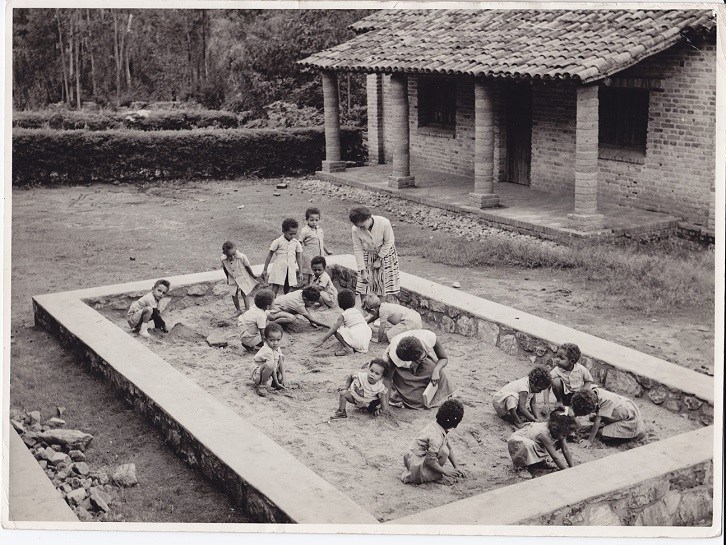Sixty years after the facts, five women who, as métis children, lived at the Katende mission in Congo are suing the Belgian state for kidnapping, abuse, being separated from their families and having their identities taken away.
The métis women - who are children of Congolese mothers and Belgian fathers and were born in Congo when it was under Belgian rule - say that this happened on a racial basis, because of their skin colour, report the Mediahuis newspapers on Monday.
"We do not want to have the whole colonisation condemned," Brussels lawyer Michèle Hirsch told the newspapers. "We ask that the Belgian government be condemned to repair the damage it has done to these women."
Related News
- Structural racism, colonial bias and invisible artists: The struggles of a black art historian in Brussels
- Legacies of the colony: The lost children of Congo
- Belgium sued for abducting mixed-race children in the Congo
There are no figures for how many métis children were born during the colonial era.
Contrary to some 300 children whose so-called "evacuation" from Congo in the run-up to its independence and adoption by Belgian families was well-documented, these five women were left behind.
Their lawyers are asking for a provisional compensation of €50,000 for each of the five women, and the appointment of an expert to determine the real moral damage.
On Thursday, the case will come before the Civil Court of Brussels.
'Visible proof of the disrupted colonial order'
In older official documents and newspapers, métis children were often called "half-bloods," referring to only half of their blood being European, or "mulattos," which has its origin in the Latin word mulus, the bastard offspring of a horse and a donkey.
Not only do both these words carry very pejorative connotations, but they also only refer to the children’s mixed skin colour. The word métis, however, carries no negative undertones and also refers to the children’s colonial background. It is the word Congolese people with a white (grand)parent now call themselves.
In Congo, Rwanda and Burundi, however, there was no place for these children under Belgian rule, as black people were made to live completely separate from their white colonisers. Métis children were the visible proof of the disrupted colonial order and had to be taken out of sight.
Mothers were pressured to sign documents in a language they often did not understand to give away their "children of the sin" to Catholic institutions. Many of them were sent to Belgium to grow up in orphanages, institutions or with adoptive parents, which ripped apart families.

